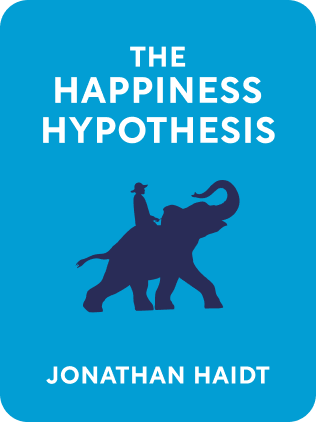

This article is an excerpt from the Shortform book guide to "The Happiness Hypothesis" by Jonathan Haidt. Shortform has the world's best summaries and analyses of books you should be reading.
Like this article? Sign up for a free trial here .
In what ways are we all hypocrites? What methods do we use to delude ourselves of this truth?
It’s easy to point out the hypocrisy of others, but it’s harder to admit that we’re all hypocrites. In The Happiness Hypothesis, it states that we all delude ourselves into thinking that we contribute more than we do and we discredit the contributions of others.
Continue reading to learn more about the psychology of hypocrisy.
We’re All Hypocrites
While we may enjoy pointing out the hypocrisy of others and relish the feeling of moral superiority that it gives us, we are all hypocrites, excoriating others for behavior that we ourselves engage in. We are able to do this without suffering cognitive dissonance because we are masters at inventing rationales for why whatever we’re doing is virtuous (or at the very least justifiable).
If we turn to the metaphor of the rider and the elephant from The Happiness Hypothesis, this is the rider acting as a sort of chief counsel for the elephant—in other words, the conscious, rational mind manufacturing reasons to justify what the emotional, impulsive part of ourselves wants to do.
It is closely related to the psychological phenomenon of motivated reasoning, whereby people seek out pseudo-evidence and ignore contradictory evidence in order to reach the conclusion that they want to reach. And because we can always cherry-pick to find some supporting evidence to justify the conclusions we want to reach, it confirms our self-delusion that our reasoning is objective.
It goes back to the primacy of emotion—it is the emotional core of the self (the elephant) that shapes our rational thinking (the rider), not the other way around.
Self-Delusion
Ironically, despite our own motivated reasoning and self-serving rationalizations, we are very good at identifying hypocrisy in others. In one study at Cornell University, students were shown to greatly overestimate their own propensity to give to a philanthropic cause. But these same students were quite accurate with regard to how generous they believed others would be.
Of course, having a positive view of yourself is not inherently a bad thing. Indeed, a positive self-image is strongly correlated with better mental health outcomes. But it can come at a price, namely, creating a sense of over-entitlement. Over-entitled people inflate their own contributions to the group while minimizing or discounting those of others. This makes it unpleasant for others to deal with us, thereby harming our relationships and decreasing our overall level of happiness.
We can see this hypocritical tendency to overrate our contributions in one 1979 study that analyzed the self-reported contributions of husbands and wives to total household work. When asked what percentage they contributed to maintaining the household, the husband-wife pairs gave answers that added up to more than 120 percent! This would only be possible if each was overrating their own contributions and discounting those of their partner.
Naive Realism
Another psychological phenomenon that contributes to self-delusion is naive realism. This is the belief that one’s own opinions are arrived at through a clear and objective study of reality, but that those who disagree are motivated instead by ignorance, prejudice, or self-interest.
People are quite receptive to information about biases, but only when it provides insight into the behavior and motivations of others. When asked to apply these insights to themselves, however, we are entirely unwilling to examine our own biases and hypocrisies. Instead, we persist in the delusion that we are objective, even when confronted with evidence that nearly everyone holds inflated views of themselves. Somehow, each of us clings to the belief that we are the sole exception.

———End of Preview———
Like what you just read? Read the rest of the world's best book summary and analysis of Jonathan Haidt's "The Happiness Hypothesis" at Shortform .
Here's what you'll find in our full The Happiness Hypothesis summary :
- How your emotions determine how satisfied you are in life
- Why you need to struggle in order to succeed
- How to create your own happiness






